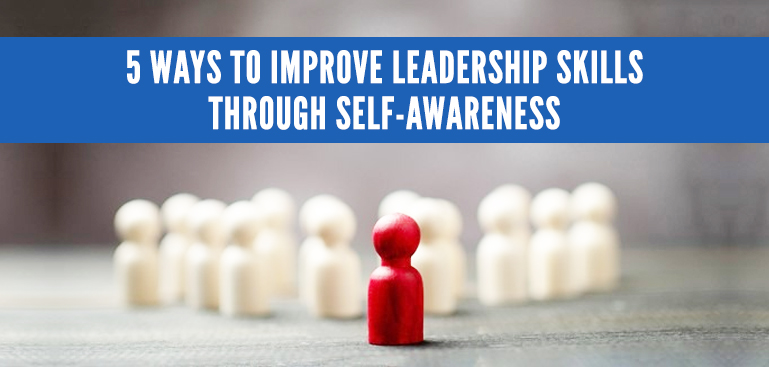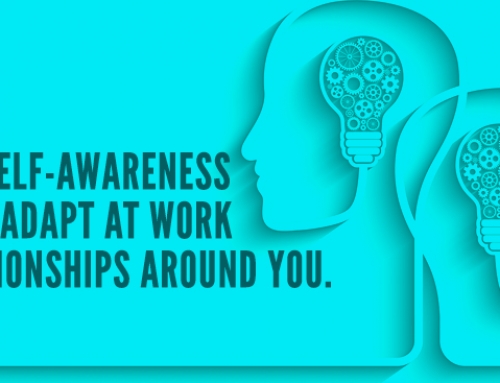Self-awareness is the most undervalued characteristic of a good leader. Here’s why you should care and what you can do about it.
I recently asked my boss, the CEO of PRISM BRAIN MAP INDIA, what leadership lessons he wishes he had learnt sooner. He didn’t say anything about learning a new business development trick or the value of hiring properly. Rather, he wished he had known how to develop his self-awareness as a leader sooner.
Really, self-awareness? After giving it some thought, I found myself nodding strongly in agreement to his response. It’s so true!
I recalled all the times as a leader when I lacked self-awareness: when I micromanaged someone and didn’t realise it; when I argued against a new concept because of my own bias… The list could go on and on. I’d always shot myself in the foot.
The more I considered it, the more I understood that self-awareness at work may be the most undervalued and underappreciated aspect of a great leader.
Here’s why I think it’s crucial to be self-aware.
Self-awareness is essentially about being conscious of your own mental state. It’s about understanding yourself: When do you feel the most energized? When did you last have a foul mood? Where do you excel and where do you falter? What are your proclivities, prejudices, and inclinations? What are your blind spots, if any?
This self-awareness is priceless. You can’t make informed decisions without self-awareness. You have no idea if you’re getting in your own way, if a strong unreasonable personal bias or a faulty mental model is influencing your perspective.
Finally, as a leader, self-awareness is critical to your growth and development. You can’t grow as a leader if you don’t recognize where you need to improve. If you want to improve as a leader, you must be able to clearly see your current state.
What are some of the ways you can develop your self-awareness as a leader, given how crucial it is?
5 Ways to Improve Your Leadership Skills
1. Assume good intentions:
Stop and identify when you are becoming defensive and are not in a healthy mental condition to take feedback. Recognize that your resistance to what the other person is saying could be due to a faulty assumption about the other person’s intent. You suspect they’re out to get you or have a hidden agenda. Assuming positive intent is a first step in gaining self-awareness in a situation: you could not be hearing things for what they are because you’re interpreting the other person’s intent.
2. Pose the difficult questions to your team:
Asking your team to help you become more self-aware is one of the most effective methods to do so. This entails posing questions to which you may be unsure of the answer. Try asking, “When was the last time something I did or said frustrated you?” at your next one-on-one meeting. “When was the last time you felt unsupported as a team member?” or “When was the last time you felt unsupported as a team member?” When you defer to them to shine light on your tendencies, you not only gain useful knowledge that will help you become more self-aware, but you also demonstrate to them that you want to improve as a leader. That, in and of itself, contributes to the strengthening of your team’s bond. Are you stumped as to what to ask your team?
3. Find a partner who will hold you accountable:
My employer found that hiring a partner was the most effective approach for him to gain more self-awareness as a leader. This was beneficial to him for two reasons:
(1) it provided him with an accountability partner, allowing him to put the things he wanted to better into practice, and
(2) it required him to reflect once a week, forcing him to set aside time to intentionally become more self-aware. Ben doubts he would have achieved the same growth as a leader without this third-party intervention to keep him actively working on his own self-awareness.
4. Hold a mirror up to yourself and the decisions you’ve made:
Self-awareness naturally entails evaluating your own mental models, biases, strengths and weaknesses, and gaps in your vision of reality. “Whenever you make a decision or take a critical decision, write down what you expect to happen,” according to Peter Drucker, a well-known management guru. Compare the results to what you expected nine or twelve months later.” Warren Buffet, for example, employs a variation of this strategy in his investing selections. This method of active reflection aids in the development of a better understanding of oneself.
5. It isn’t just about you:
Self-awareness isn’t only about looking inside and thinking about how you’re feeling. You must also be aware of what is going on with the other person. What is going on at home, or something a family member is going through, that could be hurting her performance? Is this person’s taste and reaction pattern dramatically different from yours? Don’t take it for granted that this individual wants to be treated the same way you do. As a leader, accepting the reality that not everyone is like you is a cornerstone of self-awareness. It isn’t all about you; you must endeavor to comprehend the viewpoints of others.
Ready to become more self-aware as a leader?
We’re here to help!
‘PRISM self-awareness‘ model helps you nail the fundamentals of leadership, so you can become more self-aware.
You can also connect with us on
| Phone : +91 9819 714 238 | Skype : PRISM Brain Mapping | ||
| WhatsApp : +91 9819 714 238 | Email : info@prismbrainmap.com |






